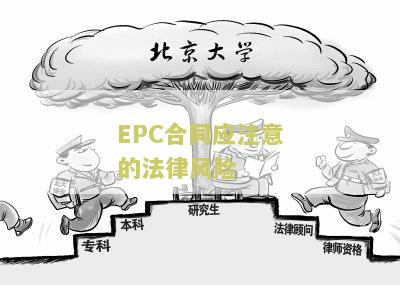EPC合同的含义及签订
EPC (Engineering, Procurement, and Construction) Contract: Understanding and Signing
Introduction:
EPC (Engineering, Procurement, and Construction) contract is widely used in various industries, especially in large-scale infrastructure projects. It is a comprehensive agreement that covers engineering design, procurement, and construction to ensure the successful completion of the project. This article aims to provide an insight into the meaning and significance of EPC contracts and the considerations involved in signing them.
EPC Contract: Meaning and Concept
An EPC contract is a type of agreement commonly used in industries such as energy, construction, and oil and gas. The contract defines the responsibilities and obligations of the parties involved, namely the employer/client and the contractor. It encompasses the entire project lifecycle, starting from engineering design, procurement of materials and equipment, and concluding with the construction and commissioning of the project.
EPC F Contract
An EPC F (Engineering, Procurement, Construction, and Financing) contract is an extension of the traditional EPC contract. In addition to the engineering, procurement, and construction services, this type of contract also includes financing arrangements. In EPC F contracts, the contractor assists the client/employer in securing the necessary funds for the project, which adds another dimension of responsibility for the contractor.
EPC O Contract
An EPC O (Engineering, Procurement, Construction, and Operation) contract is another variation of the EPC contract. In this type of agreement, the contractor not only carries out the engineering, procurement, and construction activities but also takes responsibility for the operation and maintenance of the facility or infrastructure once it is completed. This provides a holistic roach to project development, ensuring seamless transition from construction to operation.
Signing an EPC Contract
1. Clear Definition of Scope: The contract should clearly define the scope of the project, including the engineering, procurement, and construction requirements. It should provide detailed specifications, drawings, and technical documents to avoid ambiguity or disputes later on.
2. Time and Cost: The EPC contract should clearly state the timeline for project completion, including important milestones and deadlines. It should also specify the total project cost and the payment terms, including any penalties for delays or cost overruns.
3. Risk Allocation: The contract should clearly identify the risks associated with the project and allocate them between the employer/client and the contractor. It should provide provisions for handling unforeseen events, changes in scope, and dispute resolution mechanisms.
4. Performance Guarantees: The EPC contract should include performance guarantees, such as quality standards, safety measures, and environmental compliance requirements. These guarantees ensure that the contractor delivers the project according to the agreed specifications and industry standards.
5. Insurance and Indemnity: The contract should address insurance coverage, including liability insurance for both parties. It should also include indemnification clauses to protect the parties from third-party claims arising from the project.

In conclusion, EPC contracts play a vital role in project management and execution. The comprehensive nature of these contracts ensures that all aspects of a project, from design to construction and operation, are well-coordinated and ultimately successful. Understanding the nuances of EPC contracts and thoroughly reviewing the terms and conditions before signing are crucial for all parties involved. By doing so, the risks can be minimized, and the project's objectives can be achieved efficiently and effectively.
 刘特良
刘特良